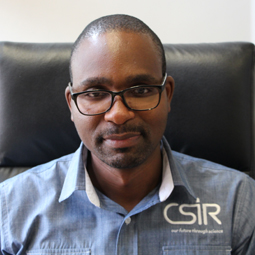Women spearheading ground-breaking research to improve SA’s competitiveness in two largely male-dominated fields
Female researchers from the Council for Scientific and Industrial Research (CSIR) are spearheading research to improve the country’s competitiveness in additive manufacturing and stem cell reprogramming.
Speaking to the media in Pretoria recently, the researchers commended the CSIR for providing a conducive environment for them to excel in all areas, including those that were previously dominated by their male counterparts.
Female researchers from the Council for Scientific and Industrial Research (CSIR) are spearheading research to improve the country’s competitiveness in additive manufacturing and stem cell reprogramming.
Speaking to the media in Pretoria recently, the researchers commended the CSIR for providing a conducive environment for them to excel in all areas, including those that were previously dominated by their male counterparts.
As part of the organisation’s Women’s Month activities to celebrate the significant role played by female researchers in society, the CSIR had an event to showcase some of their female researchers who are pioneering research and breaking barriers by being among the few women in the country to undertake such research, while improving the lives of South Africans.
The CSIR materials engineering master’s candidate, Londiwe Motibane, said engineering has always been a space full of men and that has to change.
She said women are capable and should be given the opportunity to contribute to the betterment of the country.
"I used to work in mining and I must say that it was difficult to compete as a female. Women should be allowed to showcase their talents at all times because they are very capable. Organisations such the CSIR should be commended for their continued support to women professionals. Here we are able to show that we can do just as well as our male counterparts and even better sometimes. But mostly, this shows that science and engineering can be and should be done by anyone regardless of background, gender or race.
Motibane is currently involved in the process development team of the Aeroswift Project, a collaborative effort between the CSIR, Aerosud and the Department of Science and Innovation. The aim of the project is to produce aerospace grade structural components by using additive manufacturing.
Dr Ntombi Mathe, a CSIR senior researcher, says that “women are no longer restricted by obstacles that hindered them in the past. One is only restricted by one’s own imagination. You can dream as big as you want, as long as you’re willing to put in the work. It’s high time we stop downplaying ourselves. There is no industry that is a “man’s industry”. We need to keep creating foundations for more women to enter the engineering space in order to create an environment where women are comfortable and confident.”
Dr Mathe showcased some of research breakthroughs made using the world’s largest 3D printer, which is housed at the CSIR. Some of these includes parts printed using the 3D printer such as a drone frame, throttle grip, missile trail boat, and trophies developed using titanium.
Another woman breaking barriers is CSIR researcher Dimakatso Gumede who is among the few people in South Africa who have mastered stem cell reprogramming. She studied the role of a gene mutation that causes skin and lung fibrosis, using a scientific method called induced pluripotent stem cells.
Gumede said her research seeks to address adverse drug reactions observed in the African population due to genetic diversity.
“Through using pluripotent stem cells, we are able to make liver cells and screen the prescribed drugs for liver toxicity to make dose recommendation or alternative medication for African individuals who develop adverse drug reaction to commonly prescribed drugs.”
Watch this video, courtesy of GCIS.
ENDS
Issued by David Mandaha, CSIR Media Manager, 012 841 3654 or 072 126 8910.
About the CSIR:
The CSIR is one of the leading scientific and technology research, development and implementation organisations in Africa. Constituted by an Act of Parliament in 1945 as a science council, the CSIR undertakes directed and multidisciplinary research, technological innovation, as well as industrial and scientific development to improve the quality of life of all South Africans. For more information, visit www.csir.co.za.
Follow us on social media:
Twitter: @CSIR. Facebook: CSIRSouthAfrica. Instagram: CSIRSouthAfrica. LinkedIn: Council for Scientific and Industrial Research (CSIR). Youtube: CSIRNewMedia.


